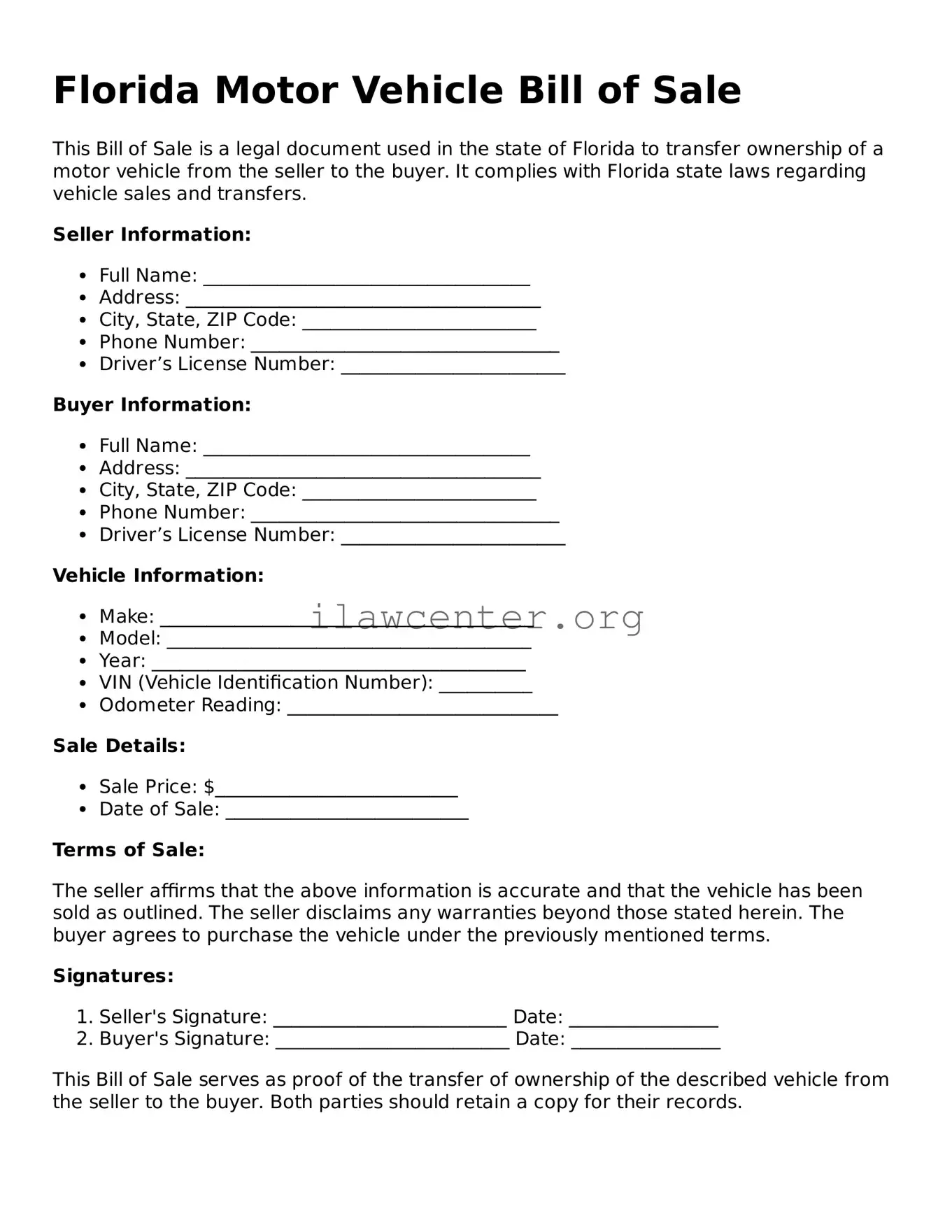What is the Florida Motor Vehicle Bill of Sale form?
The Florida Motor Vehicle Bill of Sale form is a document used to transfer ownership of a motor vehicle from one party to another. It serves as a receipt or proof of the sale, capturing essential details about the transaction, such as the vehicle description, purchase price, and the names and addresses of both the seller and buyer. This form is crucial for both parties to ensure that the sale is documented legally.
Why do I need a Bill of Sale for a vehicle in Florida?
A Bill of Sale is vital for several reasons. Firstly, it protects the seller by providing proof that the vehicle has been sold, which can help resolve any future disputes. Secondly, it protects the buyer by documenting the purchase agreement and ensuring that the transaction is legitimate. Additionally, you’ll need this document when registering the vehicle in your name.
What information is included in the Bill of Sale?
The Bill of Sale typically includes the seller’s and buyer’s names and addresses, the vehicle identification number (VIN), make, model, year, odometer reading, and the sale date. It will also state the purchase price. Detailed information makes it easier for both parties to refer back to the agreement if needed.
Is a Bill of Sale required in Florida?
How do I fill out a Bill of Sale?
Filling out a Bill of Sale is straightforward. Start by entering the current date at the top of the form. Next, provide all requested details about the transaction and the vehicle. When both parties agree on the terms, they should sign the document. Make sure to keep a copy for your records. This can come in handy in case of any disputes or queries later on.
Do I need to notarize the Bill of Sale?
No, notarization is not a requirement for a Bill of Sale in Florida. However, having it notarized can provide an extra layer of authenticity, which may make it easier to resolve issues down the line. Some buyers or sellers may prefer having a notarized document for peace of mind, even if it is not necessary.
Where do I go to file the Bill of Sale?
You don’t need to file the Bill of Sale with any agency. Instead, you should keep it for your records alongside other important transaction documents, like the title and any receipts for payment. When registering the vehicle at the local Department of Highway Safety and Motor Vehicles (DHSMV), you will need to provide a copy of the Bill of Sale, so ensure it's accessible when taking that step.
